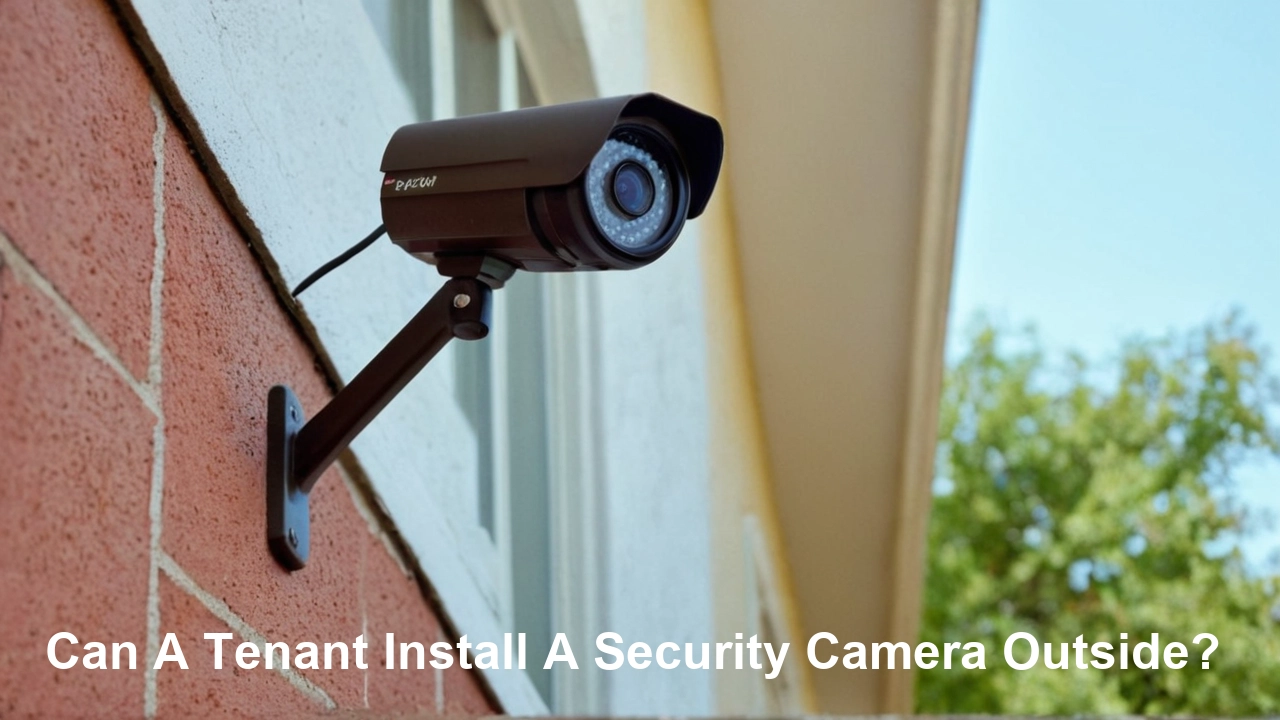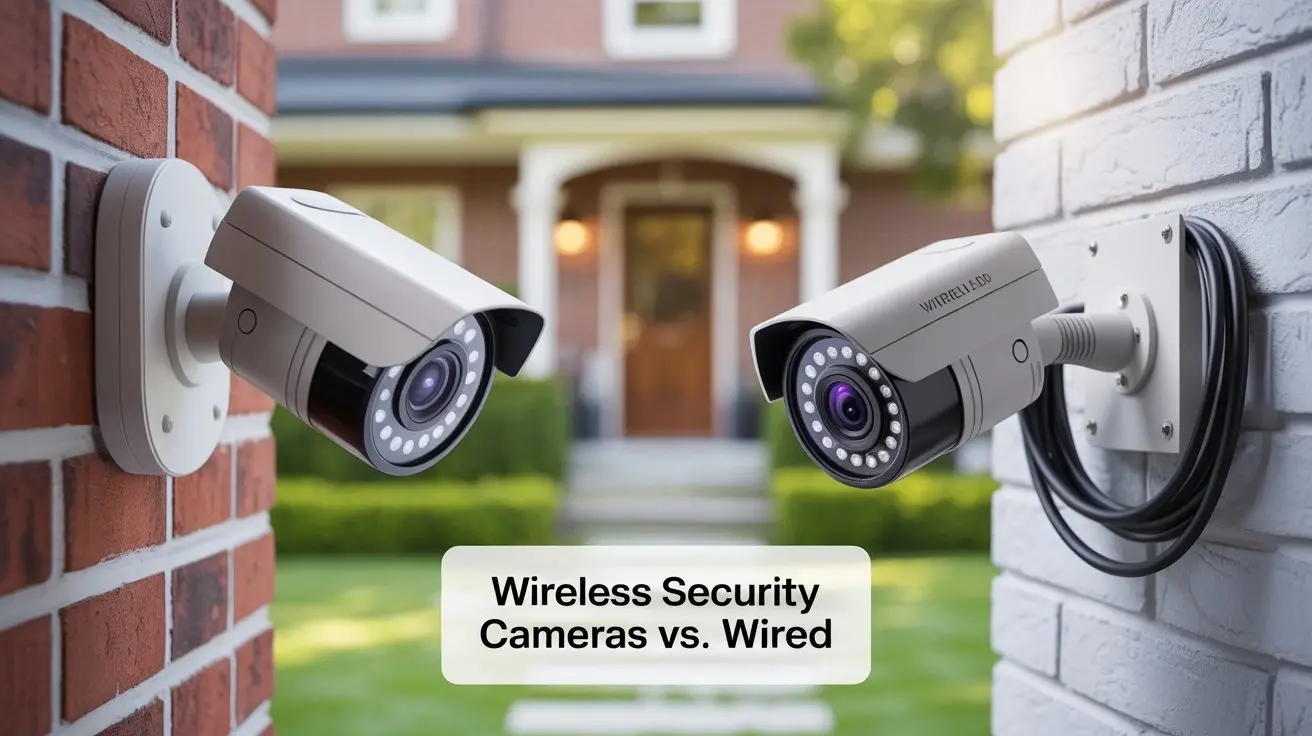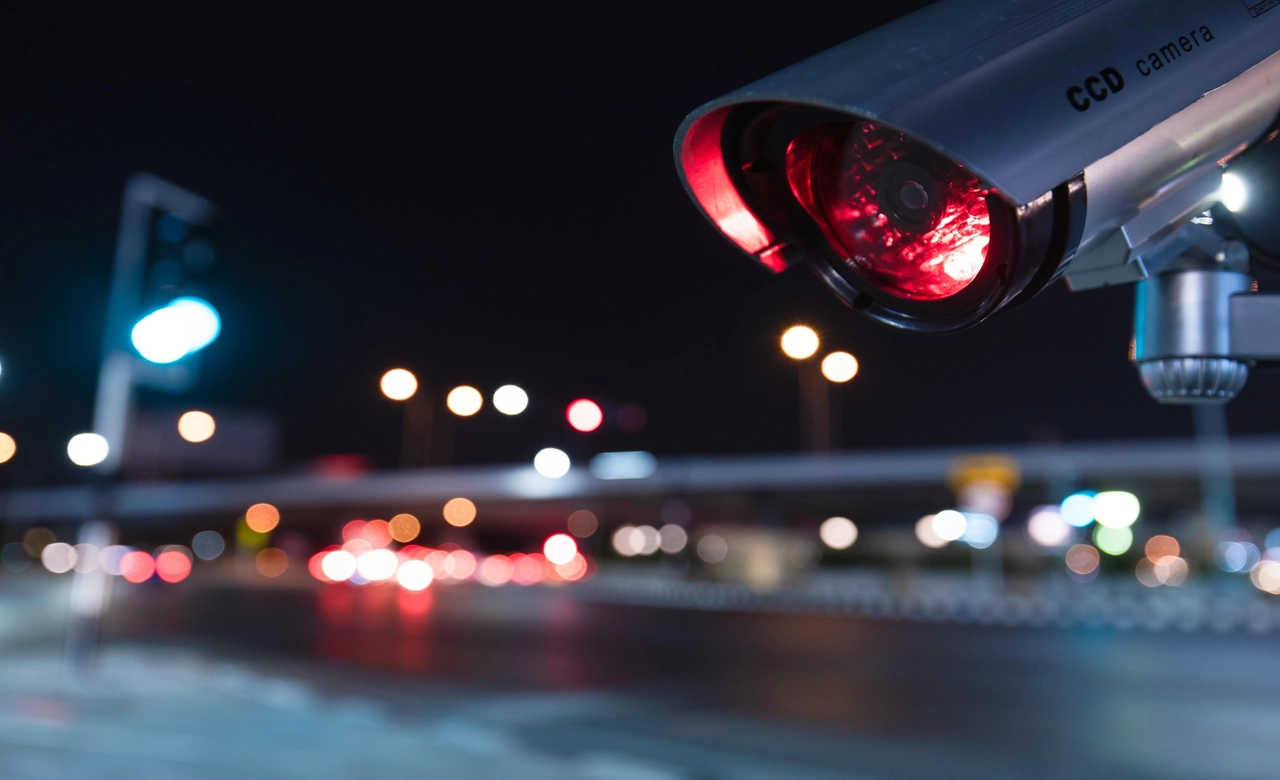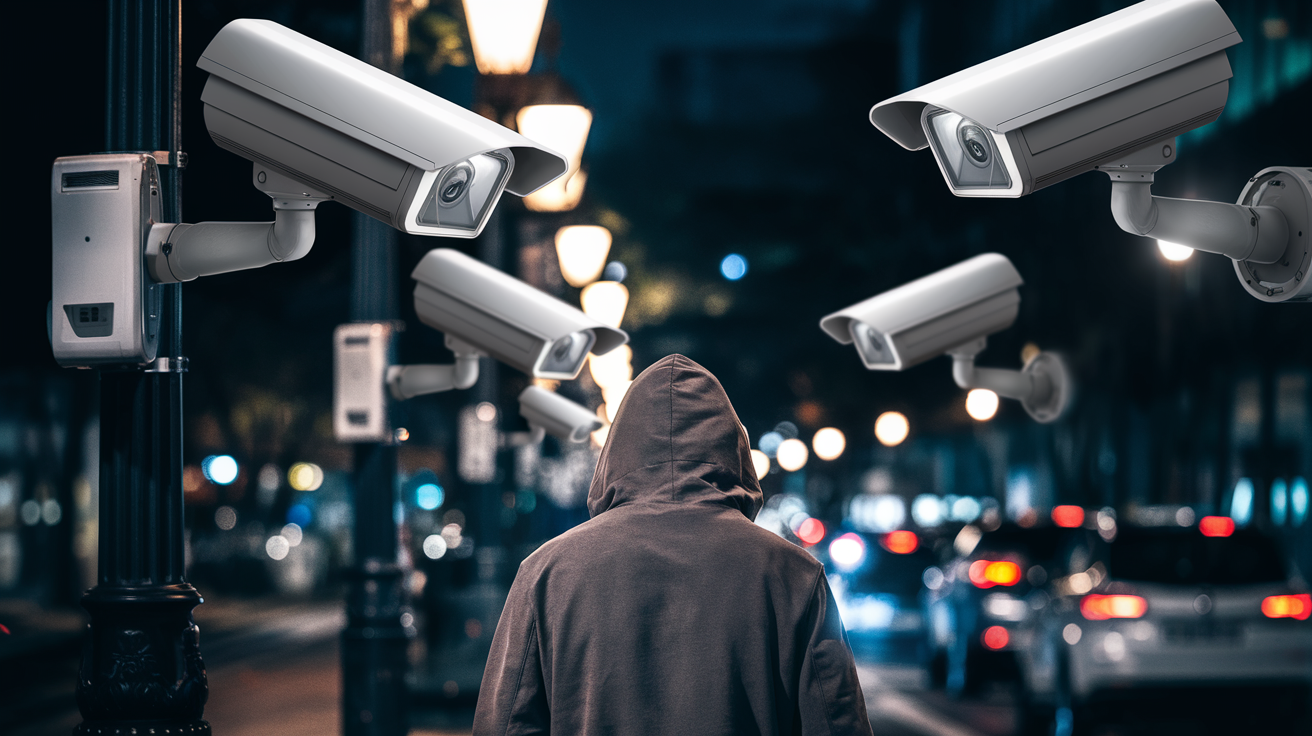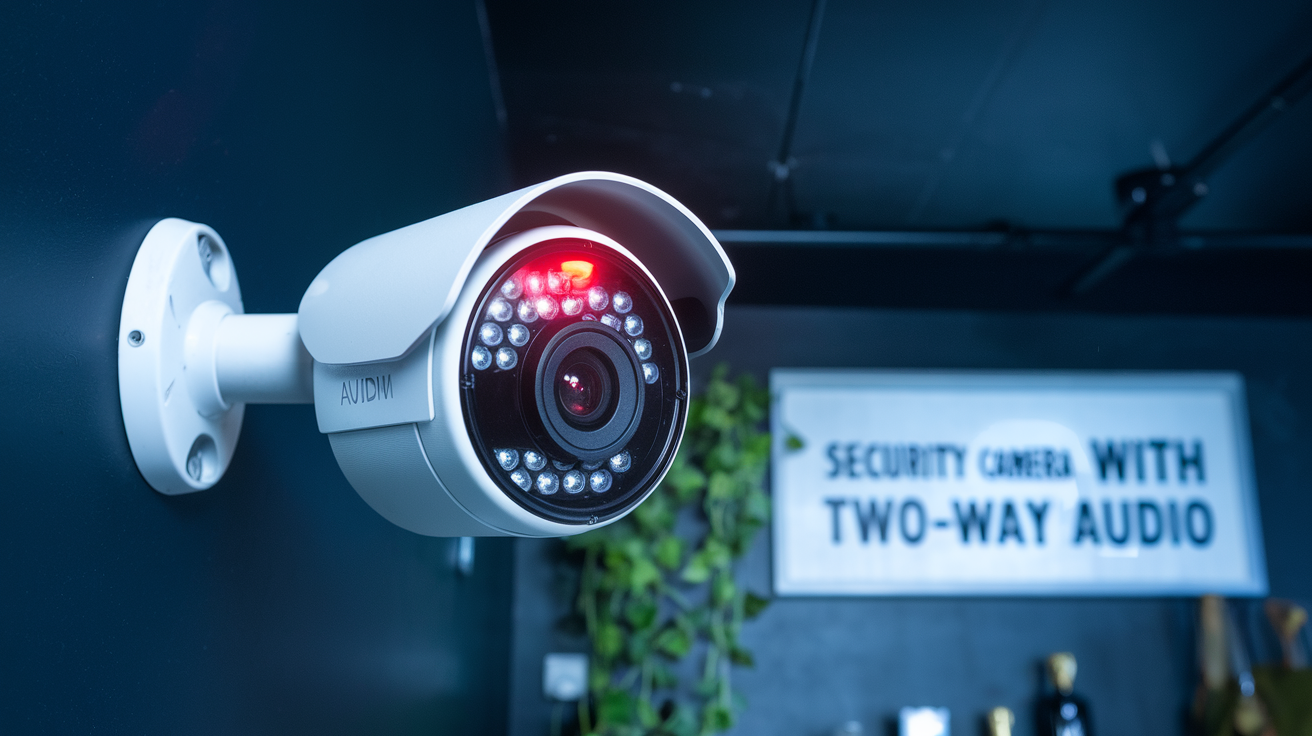Is It Legal for a Tenant to Install a Security Camera Outside?
Increasingly, tenants want to place outdoor security cameras to observe the outside of their rental units and protect their areas. But this poses legal questions and infringement of privacy, not forgetting that one needs to seek the landlord’s permission to do so. Below are some of the key considerations around the outer security cameras that tenants have to get installed.
Tenant security cameras outdoors: what does the law say?
Currently, there are no federal laws in the United States that can be interpreted to stop renters from fixing outdoor security cameras. However, there are a few issues to consider:However, there are a few issues to consider:
-
Local ordinances Some cities and counties have ordinances regarding the use of security cameras that are aimed at public areas. Tenants should first take the time to look for ordinances in their area.
-
Privacy rights – It is unlawful to record audio or video without consent as it would infringe on the wire tapping laws or right to privacy. Tenants are allowed to record only the spaces that they occupy with the consent of the other occupants.
-
Permission from the landlord – Most of the leases will dictate that exterior modifications must be done only after seeking a written permission from the landlord. Outdoor cameras most probably fall under alterations that need the landlord’s permission.
Thus, although no federal laws prohibit outdoor tenant security cameras, it is essential for renters to obtain the proper permissions first to prevent legal complications.
Can Tenants Legally Install Outdoor Security Cameras?
Tenants, as a matter of law, do not have a legal right per se to install security cameras outside the tenanted premises. Rather, it depends on the lease terms and the consent of landlords and any other neighbors or spaces within the complex that may be affected.
Some key considerations around tenant rights include:Some key considerations around tenant rights include:
-
Terms of rental agreement – These may include specific restrictions on exterior decorations or changes, and thus, outdoor cameras are prohibited if the lease does not allow modifications, or if any such change requires the landlord’s approval.
-
Privacy – Tenants probably cannot fix cameras that would be directed to other parts of the building occupied by other residents or public areas where they have no right.
-
Privacy of others – Filming the other tenants’ doorsteps or windows is unlawful even when the areas are public. As for the execution, great attention should be paid to the camera placement.
A lot of caution can be taken by renters if they are to observe rights and responsibilities as well as use outdoor cameras; this can be by ensuring that they seek written consent from their landlords first not to record common areas or personal spaces.
You may be asking yourself why a tenant would want to install outdoor security cameras?
There are a few compelling reasons why tenants may want cameras pointing at the outside of their rental, including:There are a few compelling reasons why tenants may want cameras pointing at the outside of their rental, including:
-
Preventing crime - Surveillance cameras discourage burglars, trespassers intruders, vandals and thieves among other outer space criminals to ensure security of the areas.
-
Entrance observation – Surveillance cameras placed near doors enable tenants to see guests or anything suspicious in front of their doorsteps.
-
Protecting property – Recordings provide information on people involved in exterior incidents such as burglary or graffiti so that property can be reclaimed.
-
Personal security – Observation of the exterior lets tenants assess possible security risks outside dwellings.
-
Utility – Control mechanisms such as intercoms and the ability to unlock doors remotely come in handy for tenants.
Of course the most crucial one is improving safety and security of passengers. The criminals are usually kept at bay by this and since both tenants and landlords always have this interest in deterring criminal activities, approval for the outdoor cameras is reasonable in many instances.
Basic Guidelines for Outdoor Security Cameras for Tenants
If leases and local laws permit tenants to mount outdoor security cameras or landlords grant approval, several best practices help avoid issues:If leases and local laws permit tenants to mount outdoor security cameras or landlords grant approval, several best practices help avoid issues:
-
Set cameras to capture only the exterior view of your rental without spying on communal areas, other units, or any public space. Avoid recording audio.
-
Choose camera models that discourage the criminals while at the same time they are not intrusive. Do not choose models with loudspeakers or bright floodlights.
-
Write to your landlord about how recordings are done responsibly and explain about the camera positioning and capabilities.
-
After providing visible notice that the premises is under surveillance, it is possible to discourage crimes on the rental property by installing security cameras.
-
Comply with local statutes and regulations or the homeowner or condo association rules regarding installation techniques, permits, cabling, and appearance.
-
I concur that landlords or authorities may ask for or look at recordings if exterior crimes take place to assist in getting compensation.
-
Take down cameras and fix the installation holes or wires when leaving the rented unit as provided in the lease agreement.
This is because compliance to best practices enables tenants to improve safety while at the same time, minimizing legal issues that may arise, invasion of privacy and objection from the landlords.
Things to Consider Before Installing Cameras at Home
To ensure that a tenant does not contravene the lease terms or cause discomfort to the landlord, any exterior cameras must first be approved in writing by the landlord. Important questions to ask or discuss with landlords first may include:Important questions to ask or discuss with landlords first may include:
-
Is our lease restrictive about making any changes to the outside of the rental or does it state somewhere that any change to the exterior must be approved?
-
What other exterior spaces, if any, am I permitted to cover with security cameras?
-
What sizes and/or wires of outdoor cameras are allowed?
-
Will I be required to obtain permits or adhere to the local ordinances or association requirements for installations?
-
Can recordings be reviewed if exterior crimes are committed to be used by the police?
-
When vacating the property will the cameras be listed on the property inspection report?
-
Who will be charged with the responsibility of fixing installation holes or wires at the exterior when am through with my tenancy?
It is crucial to obtain the landlord’s feedback since they usually own the property under surveillance by outdoor security cameras. Ideally, any goals and expectations should be explained in detail so that discharging approvals and overseeing tenants’ camera installation is easier. This way, the landlord does not have any issues with monitoring and recording and capabilities being exercised.
In Conclusion
Outdoor security cameras are mostly a sound safety idea. However, tenants need to consider the installation of these gadgets in their rented premises with caution with the aim of improving security, exercising legal requirement, and acknowledging the authority of the landlord.
The first crucial step is to seek written consent from the landlord. Some of the ways in which objections are reduced include proper placement of cameras, putting up notices and adherence to proper standards. Outdoor cameras are thus able to prevent exterior crimes with the right consent and conditions without intruding the monitoring or the privacy of renters at the premises. When it’s time to make plans with landlords, it is easy to seek consent since these plans are openly discussed and landlords’ concerns are also heard.
